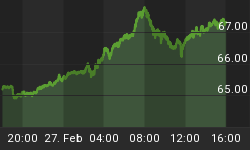Shares of Japanese multinational holding conglomerate, SoftBank Group (OTC:SFTBF,OTC:SFTBY) have jumped the most in a decade after founder and CEO, Masayoshi Son, announced plans to repurchase 600 billion yen ($5.5 billion) of the company’s stock, a radical shift from his favored strategy of spending capital on tech investments.
SoftBank shares soared 18 percent in Wednesday’s after-market to hit the daily limit after Son announced the massive buyback program during the company’s 9-month earnings presentation--enough to lower outstanding share count by ~6 percent at current prices. He said the buyback will be funded using proceeds from the $2.65 trillion yen (about $23.5 billion) IPO of its telecom business in December last year with the rest being equally split between debt paydowns and investments.
25 - 4 = 9?
Rallies after the institution of large buybacks programs are not unusual. After all, a lower share count translates to higher earnings per share and, frequently, dividends. But it’s not every day that a six percent share drawdown results in a near-20 percent climb in share price. So, what’s all the enthusiasm about?
The answer lies in the riddle “25 - 4 = 9?” that Son posed during the presentation. It’s a formula that outlines just how badly SoftBank is undervalued in the market where 25 is the value of the company’s assets in trillions of yen; 4 trillion yen is the company’s debt while 9 trillion yen represents the company’s market capitalization.
The formula was designed to capture Son’s longstanding argument that SoftBank’s share price does not accurately represent the full value of its businesses and investments. In fact, Son has repeatedly said in the past that SoftBank shares could be trading at a huge 50 percent discount to a fair value calculated on a sum-of-parts basis and is even outlined in the company’s website. Related: Greed Is Ruling The Markets Once Again
The market was excited by the announcement on two main fronts. First off, by putting his money where his mouth is, Son demonstrated that he actually believes in his undervaluation thesis. Company executives usually authorize repurchases when they believe their shares are trading substantially below fair value.
Second, Son has a good track record as far as buybacks are concerned. The last time he announced a buyback program was back in 2016 when he unveiled a 500 billion yen- authorization leading to SoftBank shares hitting their daily limit before going on to double over the next 12 months.

(Click to enlarge)
Source: CNN Money
SoftBank as an investment
So far, investor enthusiasm in the company appears well justified.
The company reported a 9-month 17.5 percent increase in net income while the same metric climbed 24 percent during the last quarter despite a severe mobile service outage that hit millions of customers. SoftBank has generally proven a sound investment under Son as evidenced by the company’s enviable 40 percent-plus IRR (Internal Rate of Return) and solid share gains, especially over the past three years.
But, more importantly, the company’s strategic investments seem to be doing quite well. The company has been focusing heavily on its $100-billion investment arm, Vision Fund, through which it hopes to channel most of its future investments especially in IT, AI and IoT. SoftBank is comparable to Berkshire Hathaway Inc. (NYSE:BRK.A,BRK.B) in that they are both holding companies.
However, the two take very different approaches with Buffett preferring to invest in mature companies with well-established profit streams as opposed to Son who has a strong bias towards promising tech startups. During the latest earnings call, Son revealed that valuation gains by his portfolio of companies in Vision Fund as well as in SoftBank’s own Delta Fund were largely responsible for profits tripling to 176 billion yen during the last quarter.
SoftBank hopes to be defined in the future by exciting industries like AI and IoT and less by its traditional telecoms sector. Indeed, Son has expressed willingness to sell the company’s stake in Sprint Corp. (NYSE:S) and invest in Vision Fund.
Vision Fund has a highly aggressive approach, churning through promising young companies before quickly cashing out. The company has already spent half its funds during the first year of operations and could run out of money for further investments unless it can liquidate some of its holdings or find new sources of funds.
And that is where things could get a bit tricky. Vision Fund is backed by several tech heavyweights including Apple, Foxconn Technology, Qualcomm and Sharp Corporation. The government of Abu Dhabi, however, is its biggest financial partner with Saudi Arabia's sovereign wealth fund contributing $45 billion to the venture and having pledged a similar amount for a second venture.
Several partners have become impatient with the Saudi crown prince and de facto ruler Mohammed bin Salman after he was implicated in the murder of dissident, Jamal Khashoggi, in October last year. Several international CEOs, including Uber’s Dara Khosrowshahi, pulled out of a major investment conference that the prince has organized in Riyadh. SoftBank’s crown jewel is likely to face growing scrutiny given Saudi Arabia’s outsized role in the fund.
On a brighter note, very few companies have permanently cut ties with Saudi Arabia over the killing, with Son expressing his plan to stand by his main financial backer. With another major windfall set to come his way from the crown prince, you can hardly fault his tenacity.
By Alex Kimani for Safehaven.com
















